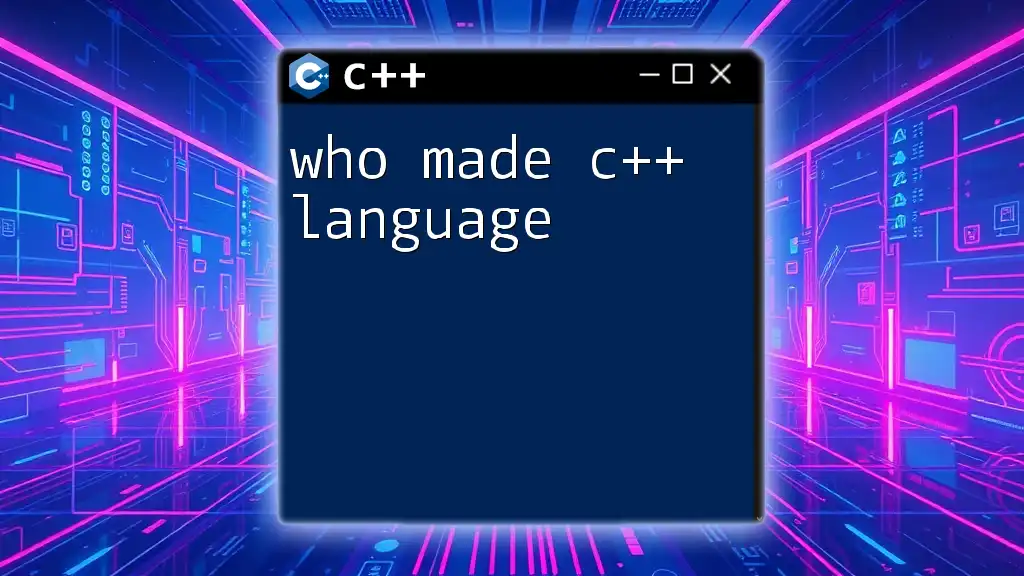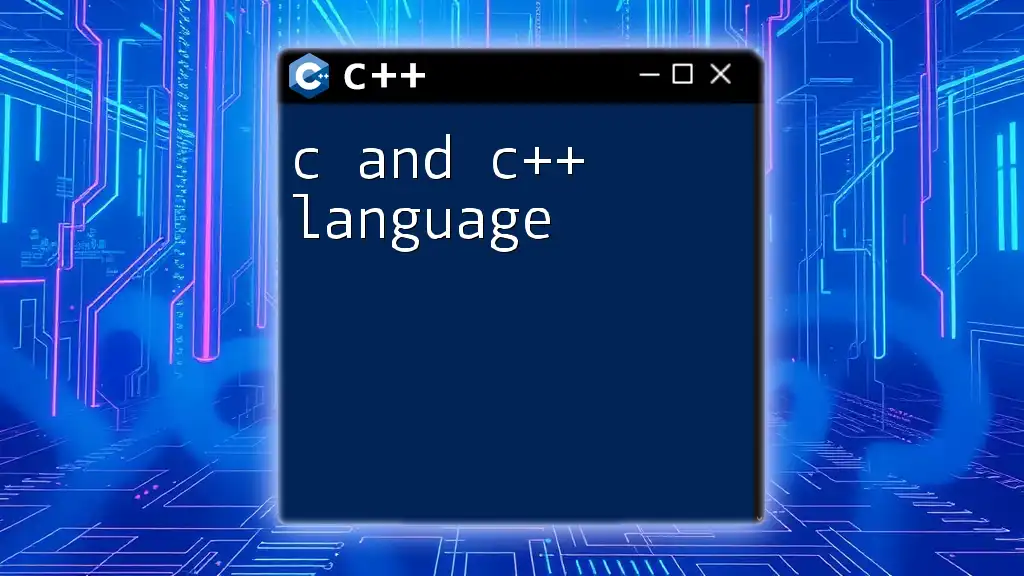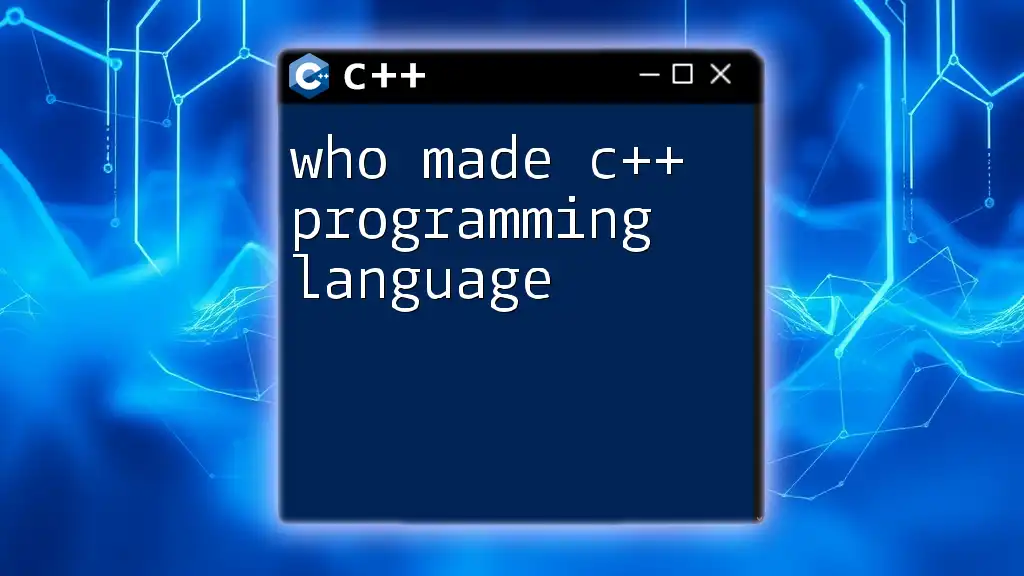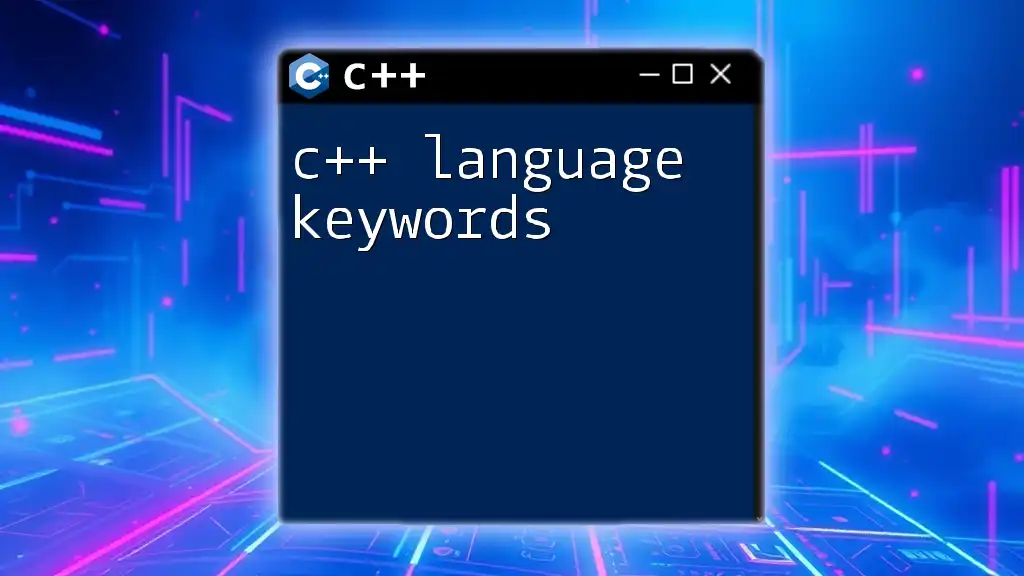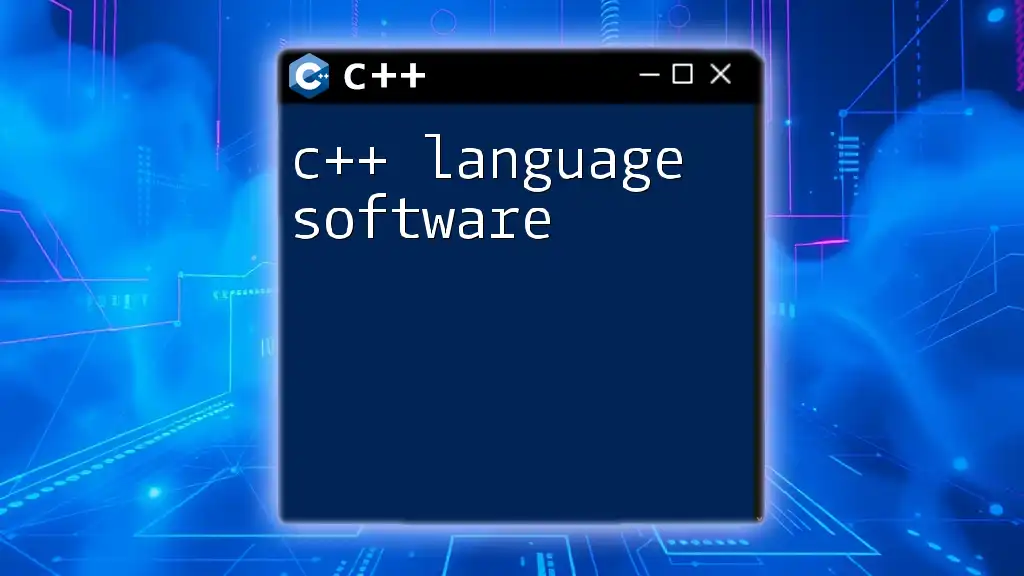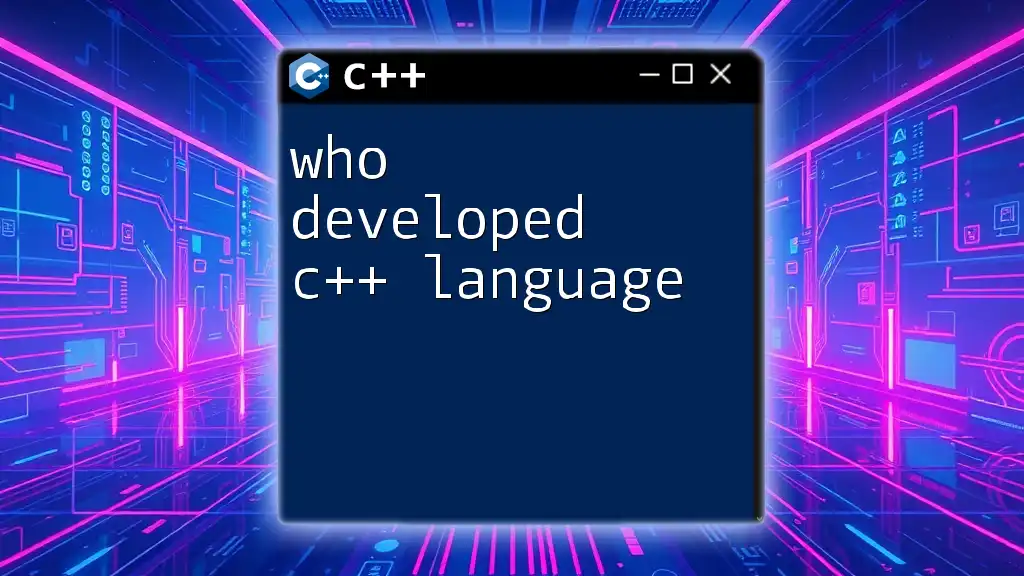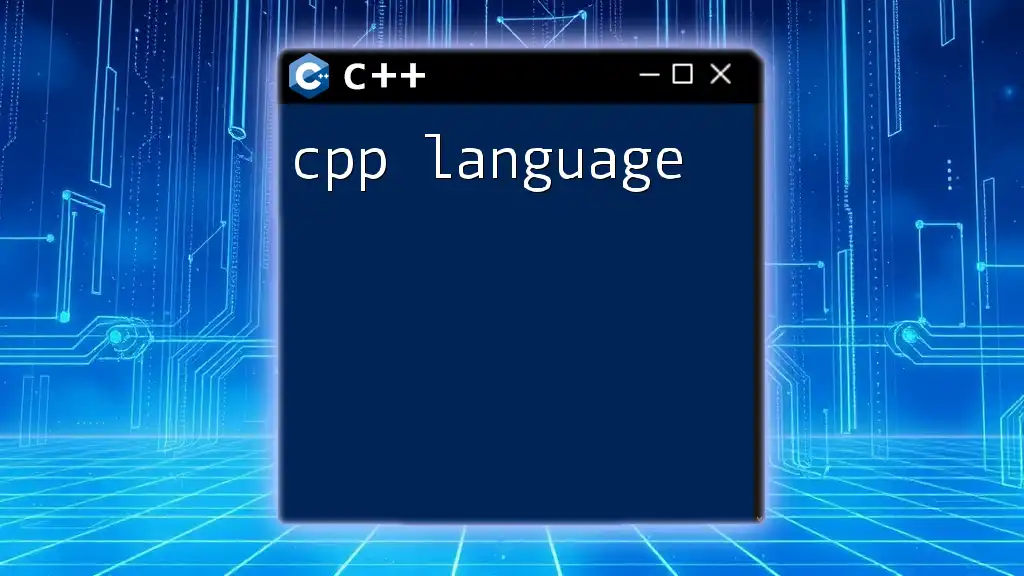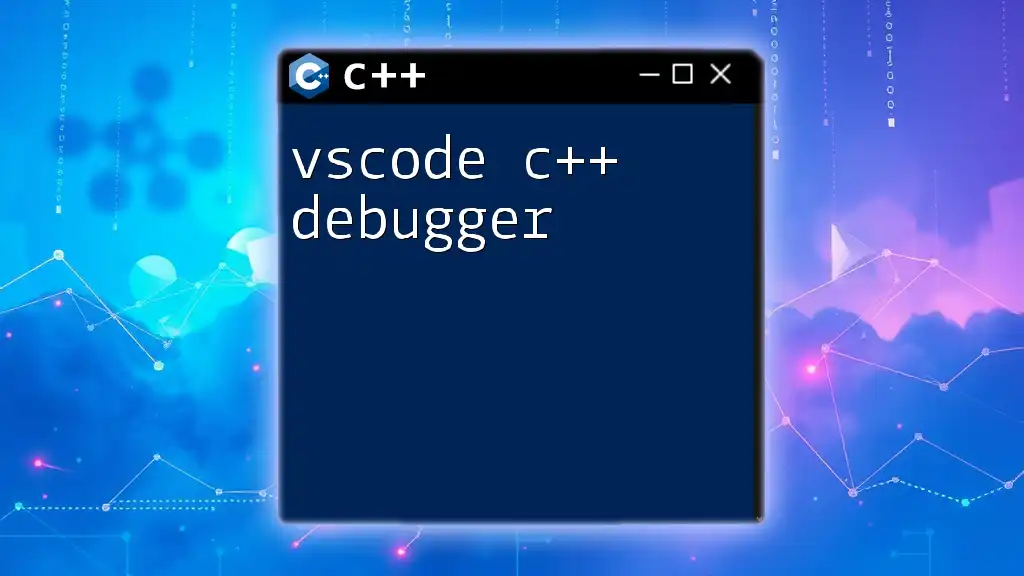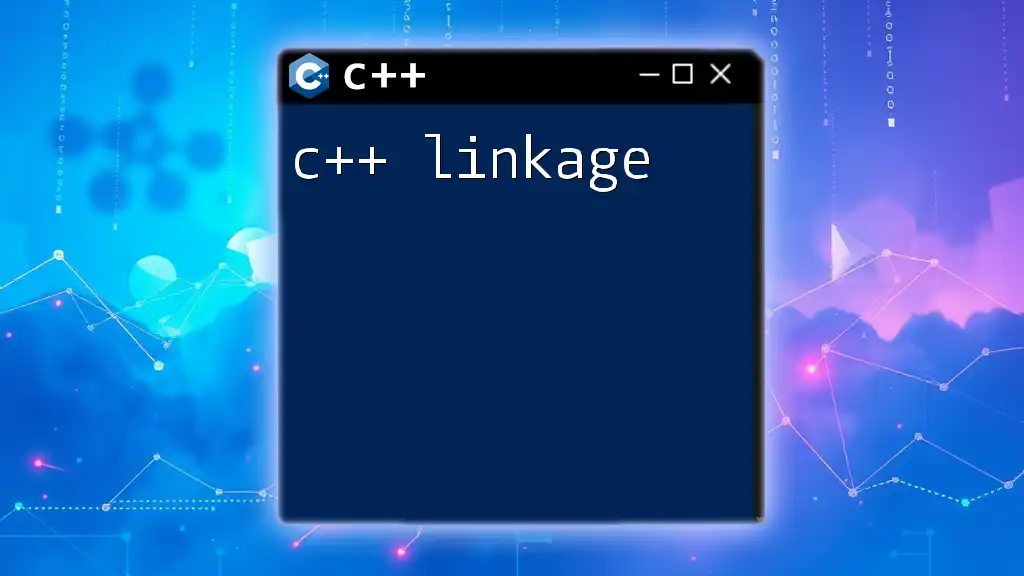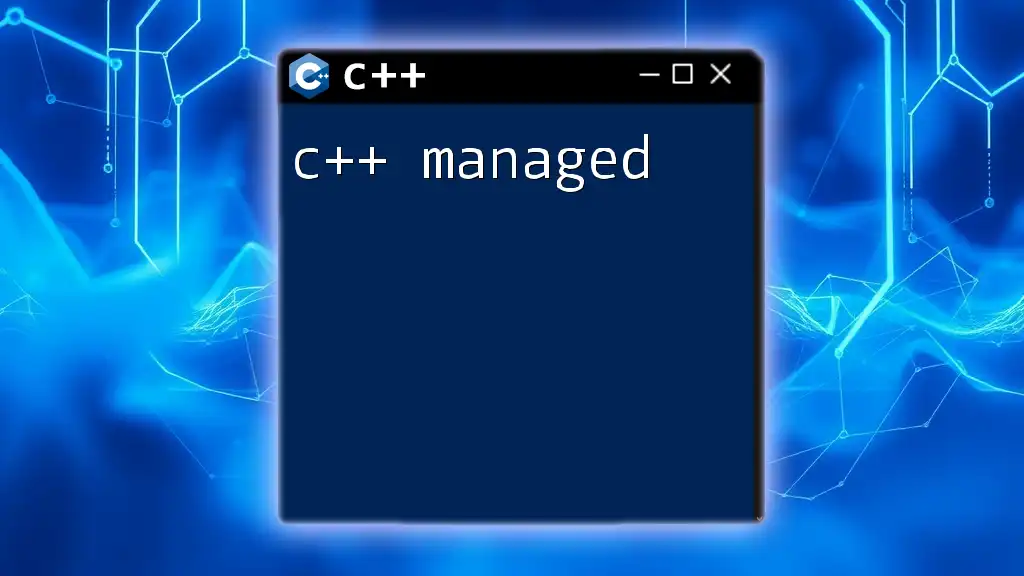C++ was created by Bjarne Stroustrup at Bell Labs in the early 1980s as an enhancement to the C programming language to include object-oriented features.
Here's a simple C++ code snippet demonstrating a classic "Hello, World!" program:
#include <iostream>
int main() {
std::cout << "Hello, World!" << std::endl;
return 0;
}
Who Created C++?
Bjarne Stroustrup: The Mind Behind C++
Bjarne Stroustrup was born on December 30, 1950, in Aarhus, Denmark. He is a distinguished computer scientist known primarily for designing and implementing the C++ programming language. His journey into computer programming began in the early 1970s while he was pursuing his master's degree in mathematics and computer science at the University of Aarhus.
Stroustrup’s motivation for creating C++ stemmed from his desire to enhance the functionality of the C programming language, which was powerful but lacked some critical features for handling large and complex software projects. The essence of his vision was to combine the efficiency of C with high-level features that would allow for better abstractions, improving developer productivity and code management.
"C with Classes" was the name given to his initial project in 1979, which laid the groundwork for what would eventually become C++. This project introduced the concept of classes, enabling data encapsulation and object-oriented programming, which were not adequately supported in C at the time.
Initial Development of C++
C++ as we know it today began taking shape in the late 1970s. Stroustrup worked on the language at Bell Labs, where he integrated various features into C that would improve its capabilities. The fundamental aspect of C++ is that it remains compatible with C, allowing developers to leverage existing C code while introducing powerful abstractions.
The transition from "C with Classes" to C++ was formalized in 1983 when Stroustrup decided to give it a new name. The name C++ not only signifies the language’s evolutionary nature (the “++” operator in C indicates incrementing)—it represents a leap toward a more powerful and sophisticated programming paradigm.
Influences on C++
The development of C++ was heavily influenced by the programming language Simula, which introduced object-oriented programming concepts such as classes and objects. Stroustrup integrated these concepts into C++ to create a language that embraced both procedural and object-oriented programming. This amalgamation allowed developers to write efficient, high-performance code while still leveraging high-level abstractions.
The Evolution of C++
Timeline of Major Releases
Over the years, C++ underwent numerous revisions and enhancements, each contributing to its robustness and popularity among programmers. Significant releases include:
-
C++98: The first standardized version, which included the Standard Template Library (STL) to provide powerful data structures and algorithms.
-
C++03: A bug-fix release that corrected issues in C++98 without introducing any new features.
-
C++11: Marked a significant turning point with the introduction of features like auto keyword, lambda expressions, and smart pointers, significantly enhancing productivity and safety.
-
C++14: This version built upon C++11, adding further enhancements such as generic lambdas and relaxed constexpr restrictions.
-
C++17: Introduced features such as the std::optional and std::variant data types, as well as filesystem support.
-
C++20: It brought major improvements, including concepts, ranges, and coroutines, pushing the language capabilities further.
The Role of ISO in Standardization
The International Organization for Standardization (ISO) played a crucial role in defining the standards for C++. Starting with the first ISO standard in 1998, the C++ language achieved worldwide recognition and use. This standardization ensured that C++ would develop in a cohesive manner, allowing for consistent implementations across different platforms and compilers.
By formalizing the language specifications, it not only enhanced the trust of organizations and developers but also encouraged the growth of a vibrant community around C++. The ISO standardization process has fostered continuous improvement to address language limitations and to adapt to evolving software development needs.
Community Contributions
The evolution of C++ has also benefitted significantly from the contributions of the programming community. Numerous frameworks and libraries have emerged over the years, providing developers with tools that extend the language’s capabilities.
For instance:
-
STL (Standard Template Library): Offers a collection of algorithms and data structures that are essential for efficient coding.
-
Boost: A collection of portable C++ libraries that extend the functionality of C++ in various areas, including data structures, algorithms, and system programming.
The collaborative nature of the community has driven C++ to remain relevant and robust in an ever-evolving software landscape.
The Impact of C++ on Software Development
C++ in Modern Programming
C++ continues to be a critical language across various sectors, including:
-
Game Development: Renowned for its performance, C++ is often the language of choice for developing high-performance games.
-
System Software: Its ability to interface closely with hardware makes it ideal for system programming such as operating systems.
-
Embedded Systems: C++ provides both the performance and the abstractions needed for embedded systems programming.
Comparison with Other Programming Languages: While many modern languages prioritize simplicity and ease of use, C++ balances complexity with power. It allows low-level memory manipulation and optimizations that are crucial for performance-critical applications, making it irreplaceable in several domains.
The Future of C++
The trajectory of C++ remains promising with current trends focusing on improving usability, performance, and safety. Ongoing developments toward additional features in future standards aim to simplify complex syntax and memory management, making the language more approachable for new developers.
Predictions suggest C++ will keep evolving, embracing new paradigms such as concurrency, and providing developers with tools to efficiently handle modern challenges such as multi-threading and asynchronous programming.
Conclusion
Bjarne Stroustrup's creation of C++ has left an indelible mark on the programming world. By merging the efficiency of C with object-oriented features and high-level abstractions, C++ has become a cornerstone of modern software development. Its rich history and ongoing evolution ensure that it remains a pivotal language for future generations of programmers who seek to harness its power and flexibility.
Additional Resources
To further explore who made the C++ language and its impact on modern programming, consider delving into recommended books, reputable online courses, and seeking best practices as you embark on your journey to mastering C++.

